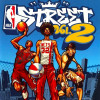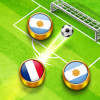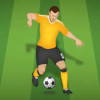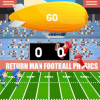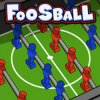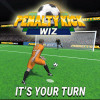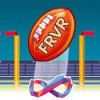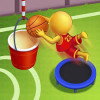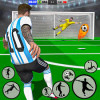Hockey Skills
About Hockey Skills
Hockey Skills is a fast-paced and exhilarating sport, that demands a unique set of skills that blend finesse and physicality. Whether you're a player stepping onto the ice for the first time or a seasoned veteran aiming to refine your technique, mastering hockey skills is essential for success in this dynamic game. In this article, we'll explore the key elements of hockey skills that make this sport so exciting and challenging.
- Skating
Skating is the foundation of hockey. Players must glide effortlessly across the ice, maintaining balance and control. Speed, agility, and endurance are crucial components of effective skating. To become a skilled skater, players work on stride length, power, and quick directional changes. Balance drills and edge work help players develop the ability to pivot and make sharp turns while maintaining speed.
- Stickhandling
Stickhandling is the art of controlling the puck with your hockey stick. It requires finesse, hand-eye coordination, and creativity. Players practice dribbling, decking, and puck protection techniques to maneuver around opponents and create scoring opportunities. Mastering stickhandling allows players to maintain possession, set up plays, and score goals.
- Shooting
Shooting is where precision meets power. Players work on various types of shots, including wrist shots, snap shots, slap shots, and backhand shots. Each shot requires a unique combination of technique and timing. Accuracy and the ability to change the trajectory of the puck are vital for putting it past the goaltender and into the net.
- Passing
Hockey is a team sport, and passing is the means by which players move the puck efficiently and effectively. Players practice passing with accuracy and speed, both short and long distances. A well-executed pass can create scoring opportunities and keep the opposing team on their toes.
- Checking and Defensive Skills
In addition to offensive skills, hockey players must be adept at defending their own zone. Defensive skills include body checking, stick checking, shot blocking, and positioning. Good defensive players anticipate the movements of their opponents and use their skills to disrupt plays and protect their own goal.
- Goaltending
Goaltenders are the last line of defense and play a pivotal role in a team's success. Goaltending skills include quick reflexes, positioning, puck-handling abilities, and mental toughness. A skilled goaltender can be the difference between victory and defeat.
- Hockey IQ
Hockey IQ encompasses a player's understanding of the game's strategies and nuances. It involves knowing when to pass, shoot, defend, or change lines. A high hockey IQ allows players to read the game, make split-second decisions, and adapt to changing situations on the ice.
Conclusion
Hockey is a sport that demands a wide range of skills, from skating and stickhandling to shooting and defensive prowess. To excel in this thrilling game, players must commit themselves to constant improvement and practice. The mastery of hockey skills not only enhances individual performance but also contributes to the overall success of the team. Whether you're a novice or a seasoned pro, the pursuit of excellence in hockey skills is a lifelong journey filled with excitement and challenges, making it one of the most beloved and enduring sports in the world.
How to play
Using Mouse and Keyboard




